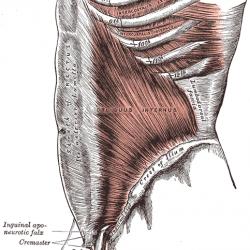Wisdom Tooth Removal - Preparation and After Care
The thought of having your impacted wisdom tooth removed may be scary. If you need to have your wisdom tooth removed, here is an article that can help you.
A wisdom tooth is also called the third molar. It is one of the three molars. The wisdom tooth normally shows up later in life, around late teens to about the early twenties.
If you have an impacted wisdom tooth, you may feel pain. Don’t ignore this because it can lead to health concerns. First, it can damage your other teeth. But more than that, it can also bring about gum disease and dry socket. Worse, it may cause cysts and benign tumors. Thus, visit your dentist as soon as possible.
What do you need to do before Wisdom Tooth Extraction?
The first thing to do is to set an appointment with an oral surgeon. Discuss your health history. During this meeting, the surgeon will also talk about the anesthesia you will have. The choices of anesthesia are general, oral sedation, or IV sedation. You can ask your surgeon what is best to recommend for you.
Also, ask questions that you may also have regarding the procedure. Then, arrange with the surgeon your schedule for the actual wisdom tooth extraction.
After this, prepare for the extraction day. If you need to arrange for somebody to take care of your children or pets, do so. Check everything at home if all you need to do is done. Even at work, see to it that you have done all your pending jobs.
You can also then file your sick or vacation leave at work. If you are still studying, let your school know about it.
Lastly, arrange for someone to pick you up from surgery to bring you home since it is not safe to drive yourself.
What Happens During Wisdom Tooth Surgery?
You might ask how long the whole procedure takes. Usually, it is about 45 minutes. The procedure itself is not painful because of the anesthesia. Thus, while the surgery is ongoing, you will feel numb or may be asleep the whole time.
After the anesthesia becomes effective, the surgeon then removes the wisdom tooth through proper dental surgical tools.
The surgeon will stitch the wounds. Don't worry, after a few days, the stitches dissolve on their own. The surgeon will also line the gum line using gauze to drain blood.
After this procedure, the level of medication is lowered to remove numbness. You can now become alert again. Now, time to go to your driver to bring you home.
What Happens After Surgery?
Expect to be groggy after the surgery. There will still be swelling and pain. There can also be some blood left inside your mouth.
You can take painkillers to help you manage the pain. You can also put an ice pack over the cheek of the area infected. Your surgeon may also give you antibiotics. Don’t forget to take those during the prescribed period, even if you no longer feel pain.
Don’t expect you to feel up and about even despite the pain killers. Take it easy and just rest! Lie down or sleep on your bed or couch.
Remember to take care of your mouth after surgery to avoid infections or complications. Also, make sure you follow the instructions of your surgeon. Your surgeon may ask you not to brush, rinse your mouth, or floss for 24 hours right after surgery. The surgeon may ask you to rinse but using saltwater. But do not spit and let the water trickle down from your mouth to the sink.
Another important thing to do is to change the gauze now and then to remove blood.
Can you eat after the surgery? Yes, you can but only eat soft food. Don't eat any hard food like nuts, seeds, or any solid food. Choose food that will not get stuck on your holes. When you eat, be careful as not to disrupt or touch your stitches. Examples of soft foods to eat are soups, mashed potatoes, and pudding. Don't eat hot foods because this can burn your tender gums. Instead, you take in cold foods like ice cream and milkshakes. Don’t forget to drink lots of water. Keep yourself well hydrated. But in drinking, don't use a straw since this can dislodge the blood clots.
How long is the recovery period? It depends on the person. But many are already able to go about their regular day to day tasks in about 2 to 3 days. Some take 3 to 4 days. Others can be as long as one week. Generally, the pain starts to subside on the third day. The surgical wounds take months to fully heal.
To ensure you have a fast recovery period, take lots of rest, and follow your surgeon's advice to you. Avoid smoking and doing heavy exercise.
Because it takes months for the wound to heal, you can still get infection weeks or months after the procedure. Thus, do not take for granted your oral hygiene during this critical period.
At any point that swelling and bleeding progresses, go to your doctor as soon as possible. If you feel unbearable pain, go to the doctor right away. Other symptoms to signal you need to see your doctor urgently are seeing blood and pus from your nose and fever. Do not disregard any of these. If these lead to complications, it can cause infection or nerve damage.
If you need to have your wisdom tooth removed, go to the number one dentist in Joondalup.
More to Read:
Previous Posts:







